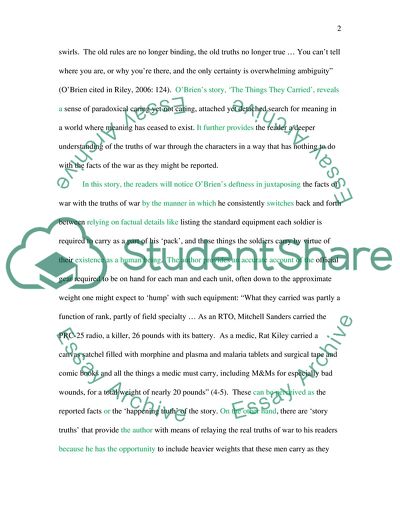Cite this document
(Exploring the Truth through the Things They Carried Literature review Example | Topics and Well Written Essays - 1500 words, n.d.)
Exploring the Truth through the Things They Carried Literature review Example | Topics and Well Written Essays - 1500 words. https://studentshare.org/philosophy/1719623-the-thing-they-carried
Exploring the Truth through the Things They Carried Literature review Example | Topics and Well Written Essays - 1500 words. https://studentshare.org/philosophy/1719623-the-thing-they-carried
(Exploring the Truth through the Things They Carried Literature Review Example | Topics and Well Written Essays - 1500 Words)
Exploring the Truth through the Things They Carried Literature Review Example | Topics and Well Written Essays - 1500 Words. https://studentshare.org/philosophy/1719623-the-thing-they-carried.
Exploring the Truth through the Things They Carried Literature Review Example | Topics and Well Written Essays - 1500 Words. https://studentshare.org/philosophy/1719623-the-thing-they-carried.
“Exploring the Truth through the Things They Carried Literature Review Example | Topics and Well Written Essays - 1500 Words”. https://studentshare.org/philosophy/1719623-the-thing-they-carried.


